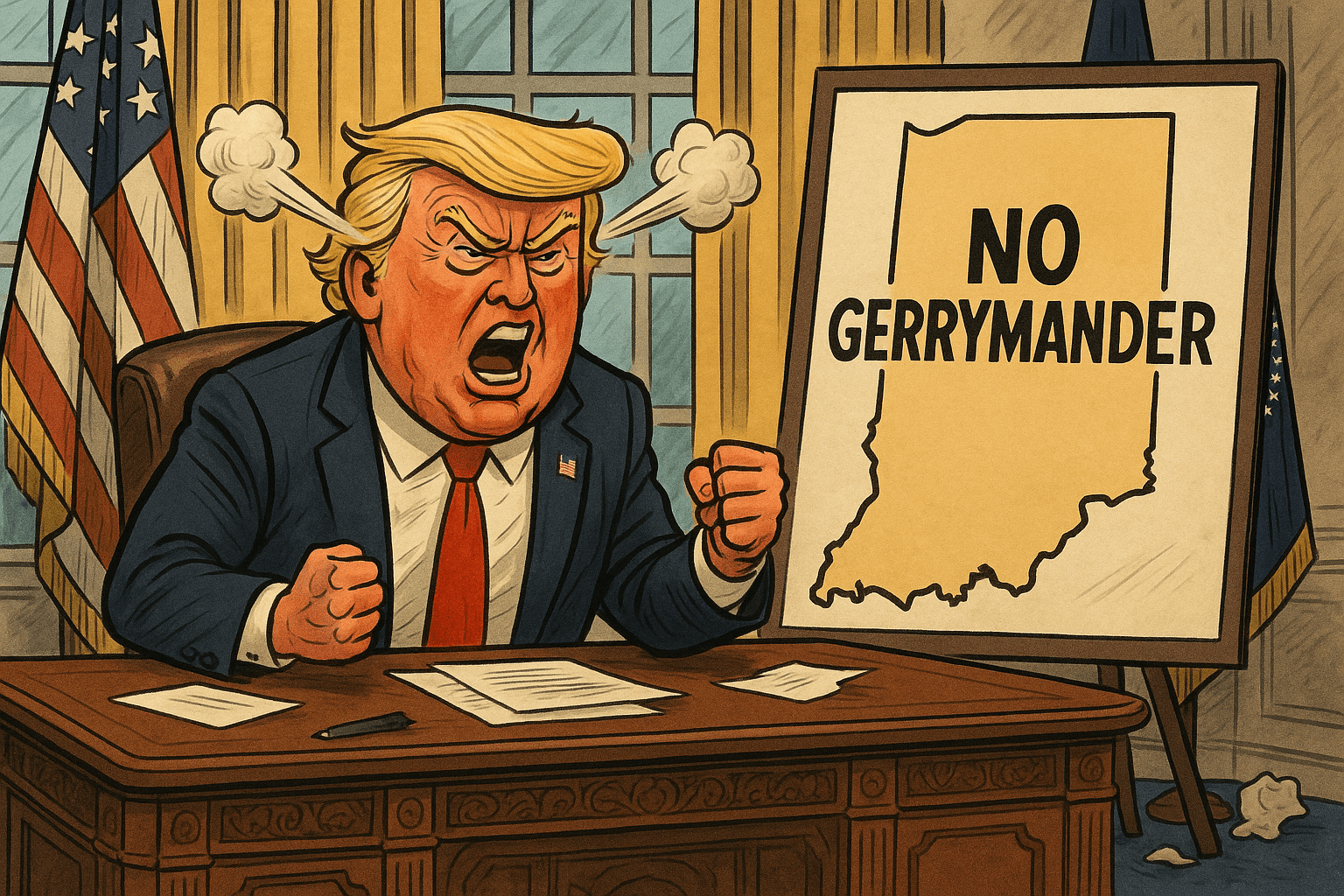Left Behind: How Runoff Elections Disenfranchise Military and Overseas Voters -- And How We Can Fix It

When Americans serve overseas, they should never have to wonder whether their vote will count. Yet for thousands of service members and U.S. citizens abroad, the very structure of our elections makes that impossible -- especially when it comes to runoff elections.
A new report by FairVote, Veterans for All Voters, and We The Veterans and Military Families exposes how military and overseas voters — known as UOCAVA voters, under the Uniformed and Overseas Citizens Absentee Voting Act — are systematically disenfranchised by runoff elections.
The report also points to a solution the organization says is “proven”: ranked choice ballots.
The Runoff Problem
Runoff elections are meant to ensure that winners have majority support. If no candidate earns over 50% of the vote, the top two face off in a second election weeks later. But this process comes with a steep cost — especially for those serving abroad.
"Voting from a war zone is extraordinarily complicated. There is no normal mail service,” said Garrett Cathcart, U.S. Army combat veteran and executive director of + More Perfect Union.
I voted from both Iraq and Afghanistan, on paper ballots delivered to me by helicopter amidst kill and capture missions… For those of us who live in states with runoff elections, it’s all but impossible to have our voices heard."
For UOCAVA voters, runoffs mean they must:
- Receive two separate ballots by mail,
- Fill them out and send them back across the world,
- And hope they arrive in time to be counted.
This is often logistically impossible. Deployments change suddenly. Mail can be delayed or lost entirely. In fact, the report highlights that in 2020, 2022, and 2024, the top reason overseas ballots were rejected was simply missing the return deadline.
The result? A massive voting gap:
2020 turnout:
- Military voters: 47%
- General population: 67%
2022 turnout:
- Military voters: 23%
- General population: 52%
Even worse, a 2020 survey revealed 21% of military members wanted to vote but couldn’t complete the process — with many citing ballot delivery failures.
Ranked Choice Ballots: A Simple, Proven Fix
Six states – Alabama, Arkansas, Georgia, Louisiana, Mississippi, and South Carolina – already use ranked choice ballots to solve this problem.
Here’s how it works:
- Military and overseas voters receive two ballots at once — a standard ballot and a ranked ballot listing all candidates.
- The ranked ballot acts as a backup.
- If a runoff is needed, officials count the ranked ballot for the voter’s highest-ranked remaining candidate.
This means one mailing, one vote, no missed deadlines — and dramatically higher participation rates.
"RCV works. It’s simple and effective, and military members can count on it… There’s no fear ballots won’t make it home in time to count," said Josh Daniels, Marine combat veteran and former Utah County clerk
South Carolina’s experience shows how effective this can be. After adopting ranked ballots, 92.5% of overseas voters who cast ballots in the primary also participated in the runoff — nearly 100% participation.
The Scope of the Problem
As of late 2024, there are 160,000 UOCAVA voters in states with runoffs for congressional elections.
- 48,000 voters are already protected by ranked ballots — including 19,000 active-duty service members.
- But 113,000 voters, including 40,000 more service members, don’t have the same protections in states like North Carolina, Oklahoma, South Dakota, and Texas, where ranked ballots are not used.
That means thousands of service members risk being disenfranchised every election cycle.
3 Policy Proposals to Protect Military and Overseas Voters
The report lays out three ways to expand protections:
1. Expand Ranked Ballots Nationwide
Congress could require every state with runoff elections to send ranked ballots to military and overseas voters. This could be done through:
- A standalone bill, or
- An amendment to the National Defense Authorization Act (NDAA).
2. Include Local Elections
Many cities hold local runoffs with extremely short timelines -- as little as two weeks between rounds. This makes voting virtually impossible for those abroad.
The report says ranked ballots could be used for local elections as well, and some municipalities like Springfield, Illinois, have already taken the lead.
3. Eliminate Runoffs Entirely with Ranked Choice Voting
Ultimately, states can replace delayed runoffs by letting all voters rank candidates on a single ballot, ensuring majority winners without a second election. This, the report agues, saves taxpayer dollars and guarantees every vote counts.
"At the bottom of the ocean, we found a way to make voting possible. We did everything in our power to make sure democracy reached every sailor” said Alberto Ramos, Chief of Staff at Veterans for All Voters and former submarine officer.
If we can pull that off from a submarine, there is no excuse for why service members should be shut out of runoff elections here at home."
Overseas military voters have sacrificed much for this country. Yet, today, many of these voters have found themselves locked out of a system that should honor their service, no matter where they serve.
FairVote, Veterans for All Voters, and We The Veterans and Military Families say ranked choice ballots are a simple, tested, bipartisan fix that protects their voices and strengthens our elections.
 Shawn Griffiths
Shawn Griffiths







